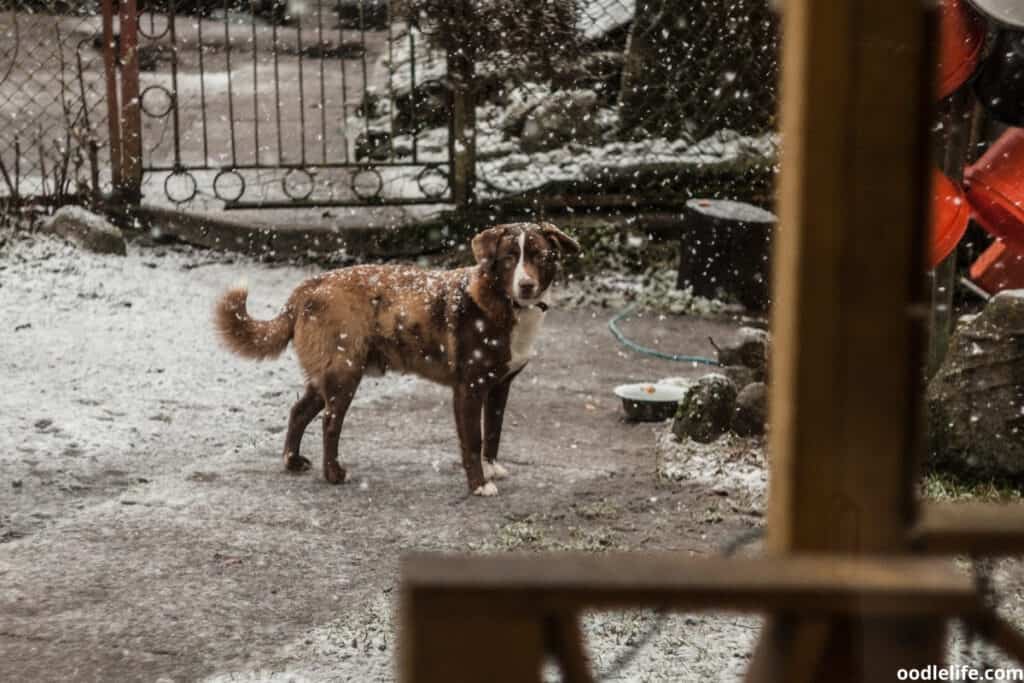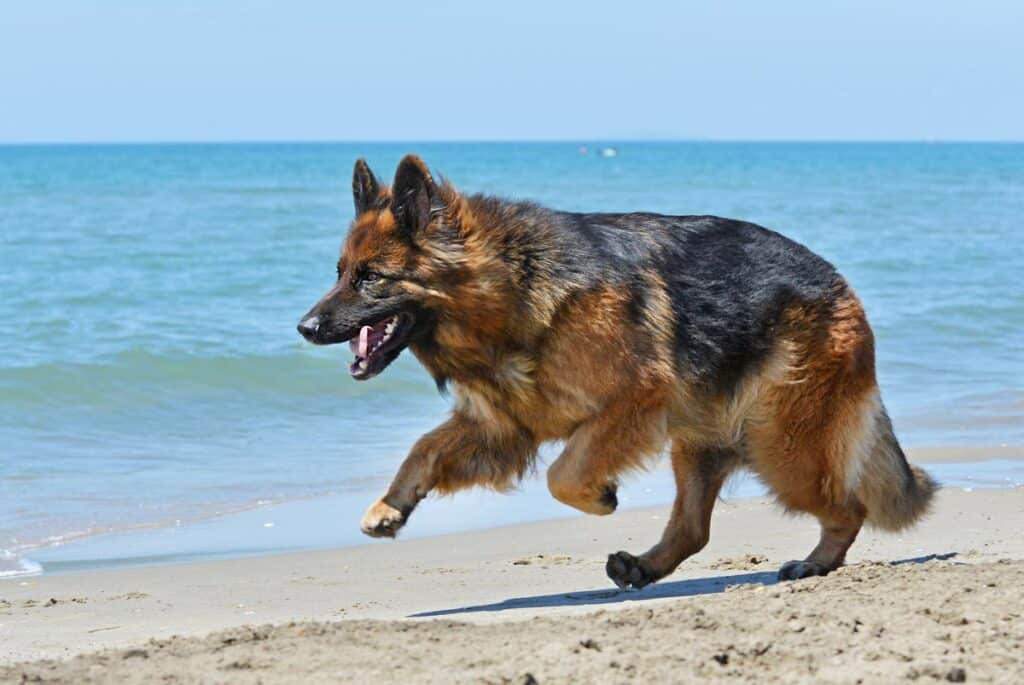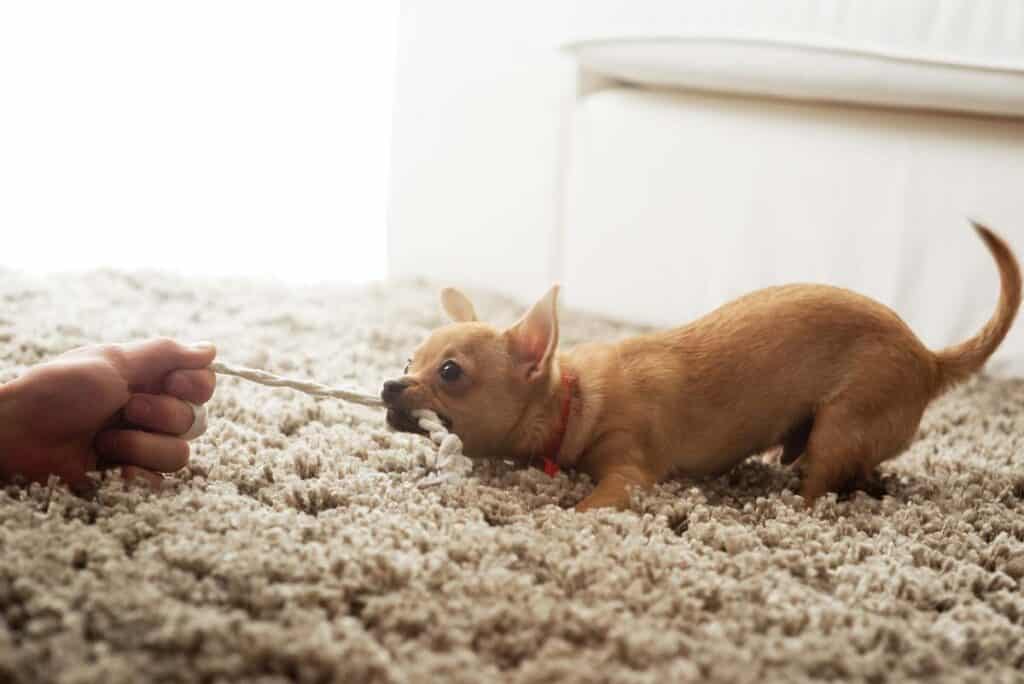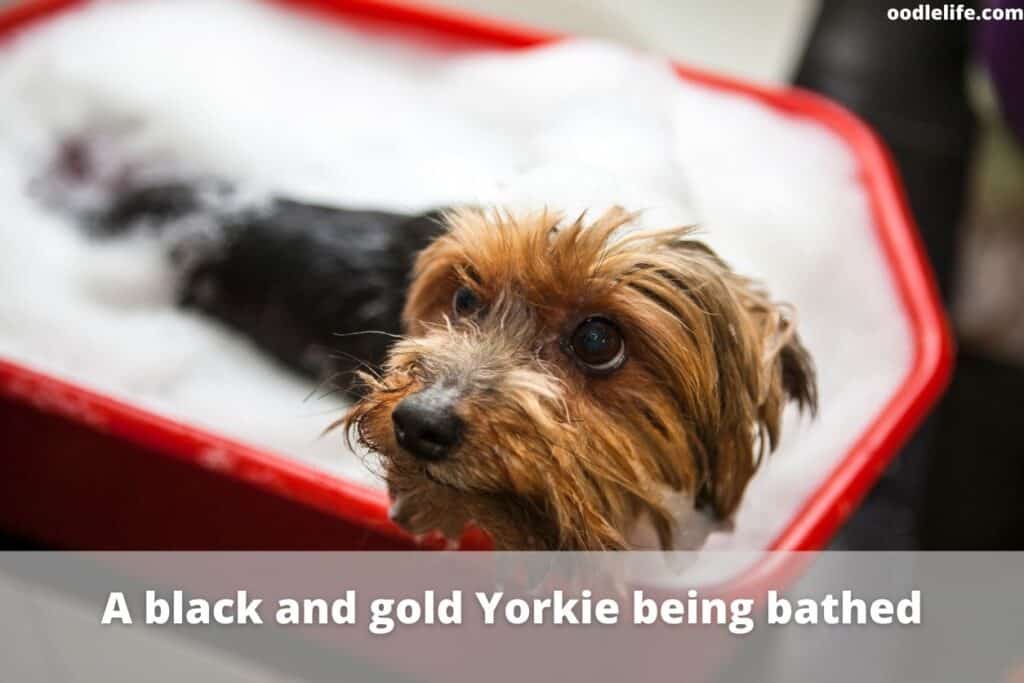Can a Neutered Dog Still Mate?
If you’ve recently neutered your male dog, you’re probably wondering when you can let him hang out with females without worrying about a fresh litter of puppies.

So, can a neutered dog still mate? Keep reading, because I’m going to answer that question for you.
What Happens When a Dog Gets Neutered?
Neutering is a procedure in which a veterinarian removes a dog’s testicles, the main storehouse for sperm. The process is a relatively quick one, but your pup will need some time to recover afterward—up to two weeks in most cases. Once he’s recovered, though, he’ll be good to go.
How Long Can a Dog Produce Sperm After Getting Neutered?
Once your dog’s testicles are removed, he won’t be able to produce any more sperm. However, there will still be some sperm circulating in other areas of his reproductive system.
The remaining sperm could take up to six weeks to fully die off, so it’s important to keep your dog away from unspayed females within the first month or two after his surgery.
Will a Neutered Dog Want to Mate?

Assuming your vet performed the neuter correctly, your dog’s desire and urge to mate will become much more subdued. This is because removing your dog’s testicles will also decrease his testosterone levels.
However, the urge to mate won’t disappear entirely, so your dog might still try to mate if a female nearby is in heat. Don’t worry, though. As long as he’s outside the recovery window, you won’t have to worry about him impregnating another dog.
Should You Neuter Your Dog?
There are plenty of reasons that you might consider neutering your dog. Of course, the main reason is to prevent reproduction, but there are several other reasons, too.
1. Decrease Aggression
Some male dogs, such as Huskies or German Shepherds, have very protective drives that can present in the form of aggression. Neutering your dog will decrease the hormones that lead to severe aggression.

2. Decrease Homeless Dog Population
Millions of dogs end up in shelters each year. Some are strays, others are surrenders, and most end up in shelters for months because supply far outstrips demand. Neutering your dog is one of the best ways to ensure he doesn’t contribute to the overpopulation of dogs in shelters.
3. Reduce Problem Behaviors
Frequent urination, humping, and marking territory are some of the most frustrating behaviors in a male dog. Neutering can help reduce those behaviors by easing the urges in your dog. Not to mention, it’ll certainly save you the need to replace carpets and furniture.

4. Prevent Certain Diseases
Certain cancers, such as testicular cancer and prostate disease, are common in dogs as they get on in years. Removing your dog’s testicles eliminates the chance of him developing testicular cancer. It also helps decrease the risk of prostate disease.
How to Care for Your Dog After Surgery
It’s so hard to see our fur babies in pain after surgery, so I know how much you’ll want to keep yours comfortable once you bring him home.
Caring for your dog after his surgery is incredibly important for his recovery. Unfortunately, he’ll be in some discomfort, and likely won’t be back on his feet fully for a couple of weeks.
So, how can you care for your pup post-op?
1. Limit Activity
Although it’ll be hard to do with active dogs, limiting your dog’s activity after surgery is vital to his recovery. He’ll have stitches, so you want to prevent any movements that could risk pulling them.
You also don’t want him to overexert himself. A carrier or crate that’s the correct size for him will do just fine.

2. Monitor the Incision
Your dog will likely get internal stitches that will dissolve on their own, along with external stitches the vet will remove. Your vet will have you bring your dog back ten days after surgery to have the stitches or staples removed.
During that period, you’ll need to keep the incision dry and discourage your dog from licking, scratching, or nibbling at it.
3. Keep Him Away From Unspayed Females
Since your dog can still get a female pregnant for several weeks after his surgery, you’ll need to keep him away from females in heat until then. Not only could you risk pregnancy, but if it’s too soon after surgery, your dog could also injure himself.
4. Monitor His Pain
You know your pup better than anyone, so you’re the best judge of what’s normal and what isn’t. Keep a close eye on his behavior, how he reacts when you touch him, and any signs of distress.
If it seems like he’s in excessive pain, call your vet right away to find out what you can give him to ease the pain. If the pain seems abnormal, you might want to try and bring him in so the vet can look him over.
5. Ask Questions
Your vet wants your dog to have a smooth recovery. Before you go into the office, make a list of questions to ask so you can make sure you’re doing all the right things once your dog’s out of surgery.
Your vet won’t feel bothered, and it’s best to get all the necessary information at once instead of waiting until there’s a potential emergency.
When’s the Best Time to Have Your Dog Neutered?

Research shows that dog breeds mature at different times, so the right time to neuter your Yorkie might be different than for your Golden Retriever.
Neutering a dog too soon could actually lead to health problems, so it’s essential to make sure you read up on what the recommendations are for your breed.
The old rule of thumb was to neuter after six months of age. However, considering the new research, professionals recommend you follow guidelines for your breed to prevent unwanted health issues. If you’re not sure what they are, contact your vet to find out for sure.
Final Thoughts
Neutering your dog can do great things to improve his health and behavior. Fortunately, once he’s neutered, he’ll no longer be able to mate, which will help lead to fewer unwanted pets in shelters.
And remember, if you have any questions or concerns about the process, simply contact your vet.